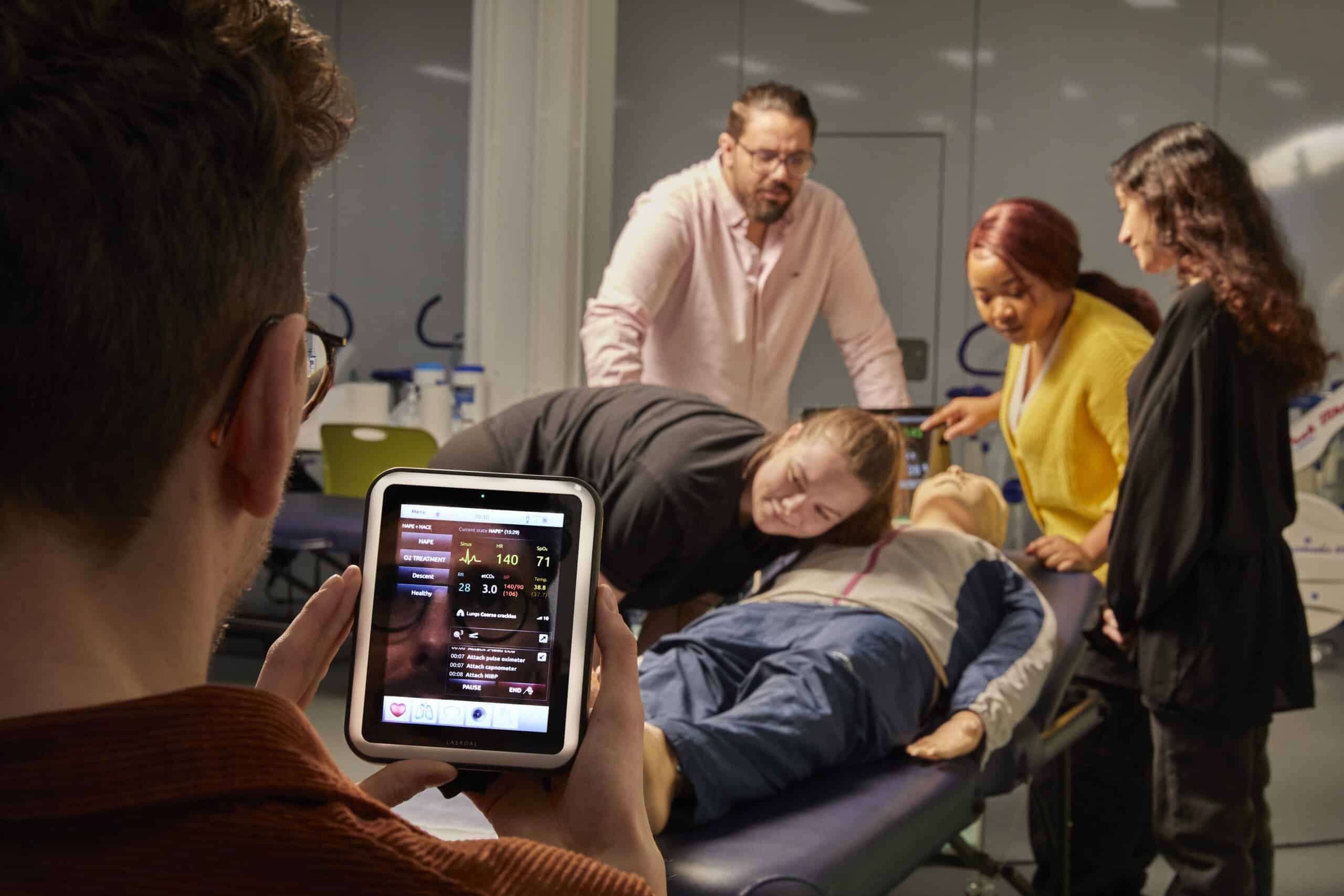When you study at Manchester Metropolitan University’s Department of Life Sciences – embedded in the Faculty of Science and Engineering – you become part of one of the largest research-led science and technology institutions in the UK.
Manchester is a city set apart from the crowd. It is one of the best places in the world to study in QS Best Student Cities 2022, one of the UK’s (and the world’s) biggest cities in Life Sciences and has a rich history of development in the health sciences too.
Elite sports, a legendary music scene, and a rich cultural history only scratch the surface of what the city offers; at Manchester Met, students benefit from learning in a practical, research-active environment and are sought-after by employers for their analytical, practical, and problem-solving skills.
Take the Biomedical Science and Human Physiology undergraduate programmes, for example, both accredited by the Royal Society of Biology.
The department’s strong links to the NHS, hospitals, and clinicians shape the curriculum and ensure the skills you’re learning are fully relevant to the workplace. The department’s strong research ethos in many aspects of the subject will aid in your research project as you work alongside researchers who are publishing their work in leading international journals.
With Manchester Met synonymous with health research excellence, courses here benefit from the latest research-informed teaching, technology enhanced learning and state-of-the-art facilities in the new Dalton Building.
Work integrated learning and development of technical skills are highly valued by students to support their academic success. Romanian student Isabel Sofronea says, “The laboratories are extremely important because they allow us to observe how the course applies to practice.”
Besides developing technical skills in the lab, undergraduate students can opt for a placement year to gain working experience. That’s not all; the university has a Rise programme with various experiences to help you learn new skills, earn credits towards your degree, and inform your future career.
These factors make you job-ready. More than 80% of biomedical science and human physiology undergraduates go on to secure roles in the NHS, laboratories, research institutes, pharmaceutical industry, education and medical communication sector, according to data by Discover Uni, an official source of information about higher education across the UK. Many also go on to further studies at master’s and PhD level. Those in the latter category can choose from a suite of postgraduate programmes offered here.
The MSc Biomedical Science programme is accredited by the Institute of Biomedical Science, and the MSc Human Physiology programme is one of the few taught postgraduate courses in human physiology in the UK. The faculty offers research degrees in bioscience too, including infection science, cardiovascular science and ageing and lifelong health.

Students working on the Biomedical Science programme at Manchester Metropolitan University. Source: Manchester Metropolitan University
Both MSc programmes include a research project. This is a chance for you to tackle the issues that fascinate you the most and are allied to your specialism, employment aspirations and specific academic interests. From start to end, you’ll get plenty of help from expert tutors and researchers. You’ll work on understanding both the process and the communication of scientific enquiry, then get guidance through your proposal and review process to equip you with the skills you need to complete an independent piece of research.
With advanced knowledge and professional-level research skills, MSc graduates are set for a wide range of careers in industry and academia. “There are many job opportunities in Manchester, providing a path for growth and career development,” says MSc Human Physiology student Margaret Poloamina from Nigeria. “And the university provides a warm environment for international students as well, providing everything we need to be comfortable and excel in our chosen programme.”
It is as Margaret says: at Manchester Met, support is provided in spades from the get-go. From an allocated personal tutor to a programme support tutor and a specialist skills tutor, help is always available, even before you step foot into the university.
“Before I arrived in the UK, I received several emails from my personal tutor,” says Manar Alawkar from Saudi Arabia. “She sent me lots of information about everything I needed for my studies.”
Dexin Yang from China echoes that sentiment. “As a non-native English-speaking student, I was very timid when I first came to class,” they said. “With the help and guidance of my tutors, I completed the course presentation in English and answered the questions of the teachers and classmates smoothly. They all encouraged me when I was done, and I felt my progress and was happy to be in such a friendly and positive environment.”
Manchester Met saw a year of accolades and achievements in 2023: awarded Gold in the Teaching Excellence Framework 2023, which rates the university outstanding for its student experience; earning their best-ever National Student Survey results that placed them in the top 30 of the Times Higher Education league table for the first time; and seeing a more than 10% increase in graduate outcome results over the past two years – 2023 saw a 6.7% increase when the average for other UK institutions was at 3%.
Follow Manchester Metropolitan University on Facebook, Instagram, X, YouTube, and LinkedIn











